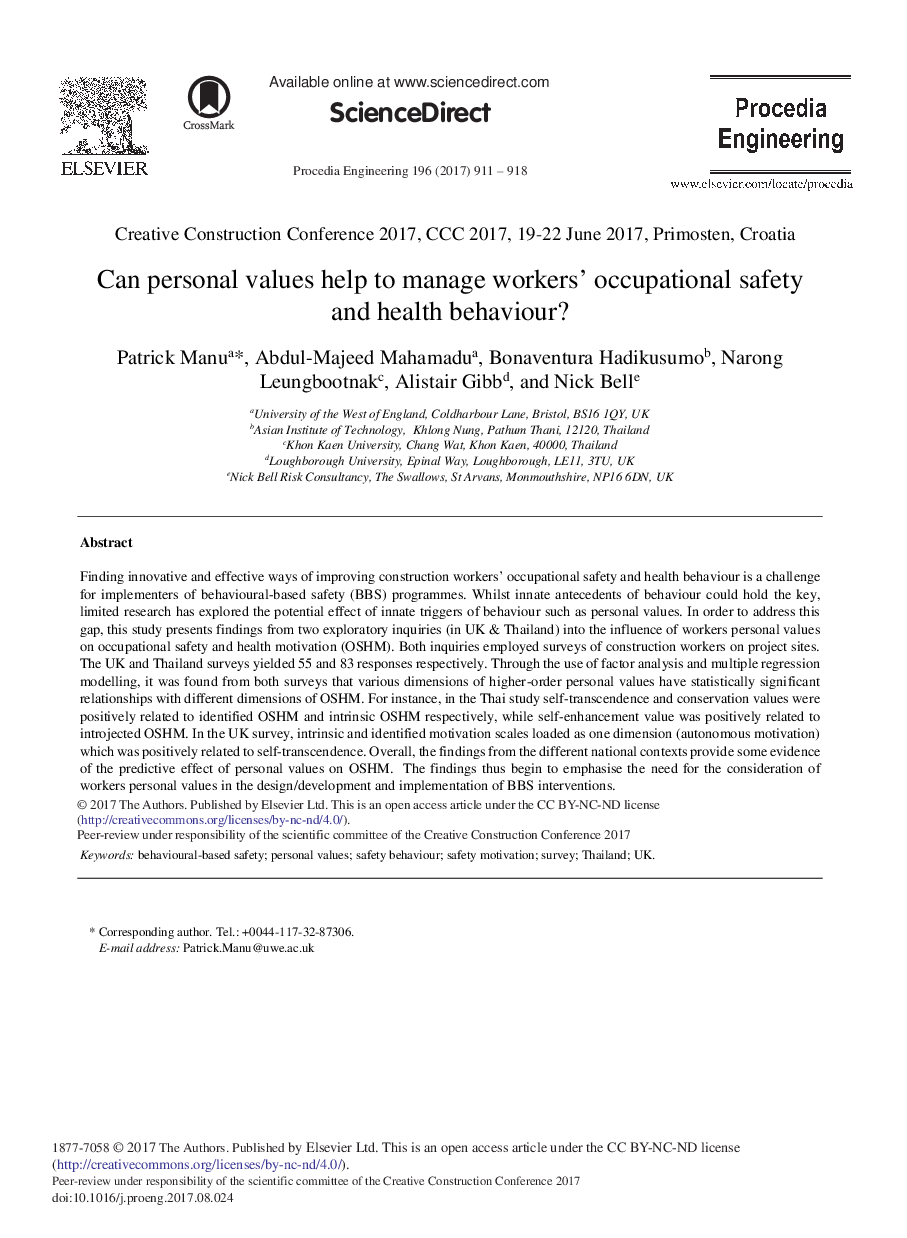ترجمه فارسی عنوان مقاله
آیا ارزش های شخصی می تواند به مدیریت کارکنان کمک کند؟ ایمنی شغلی و رفتار بهداشتی
عنوان انگلیسی
Can Personal Values Help to Manage Workersâ Occupational Safety and Health Behaviour?
| کد مقاله | سال انتشار | تعداد صفحات مقاله انگلیسی |
|---|---|---|
| 121514 | 2017 | 8 صفحه PDF |
منبع

Publisher : Elsevier - Science Direct (الزویر - ساینس دایرکت)
Journal : Procedia Engineering, Volume 196, 2017, Pages 911-918
ترجمه کلمات کلیدی
ایمنی مبتنی بر رفتار، ارزش های شخصی، رفتار ایمنی، انگیزه ایمنی، نظر سنجی، تایلند، انگلستان.،
کلمات کلیدی انگلیسی
behavioural-based safety; personal values; safety behaviour; safety motivation; survey; Thailand; UK.;

